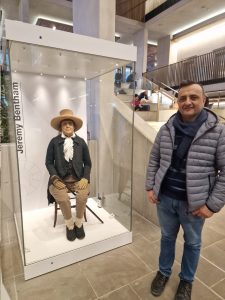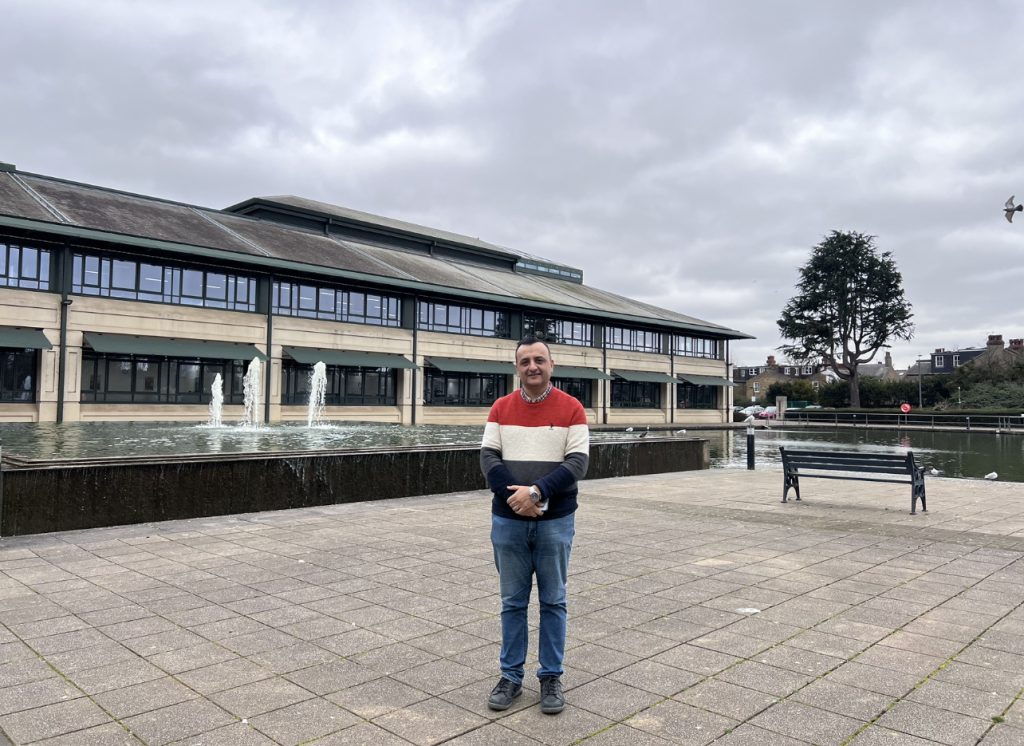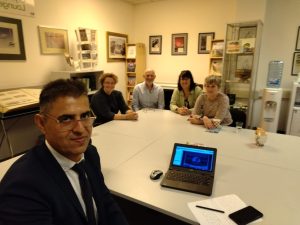Iraqi Heritage under the British Mandate
By Zainab, on 7 March 2023
We talk to Dr Sadiq Khalil Abid PhD in Architecture (University of Sheffield) and former Consultant in the Prime Minister’s office. Dr Sadiq is a returning scholar who came to finish the second phase of his scholarship in February 2023. He held a Nahrein – BISI Visiting Scholarship at The National Archive titled Iraqi Heritage under the British Mandate under the supervision of Dr Juliette Desplat.
What were the main benefits of your scholarship?
My goal is to build effective advocacy through case studies of endangered Iraqi Heritage. During my stay in the UK, I was able to discuss with various professionals from different backgrounds how to better raise awareness about Iraqi Heritage. The Nahrein Network has been a great support not only to me, but to many Iraqi scholars that are collectively working towards the sustainable development of Iraqi history and heritage.

Dr Sadiq Khalil with Jeremy Bentham, philosopher and reformer whose educational ideas influenced the founding and development of UCL
What was the main highlight of your scholarship?
My main research is focusing on the relationship between politics and cultural heritage with particular reference to Baghdad and Najaf. I’m keen on dealing with some specific case studies such as Al-Tahrir Square, the Royal Cemetery, and al-Rashid street in Baghdad, in addition to the Najaf old town. It can be stated that Iraq has a number of sites, many are in danger of permanent deterioration due to muddled conservation practices. This research will examine the current state of Iraqi conservation practices, with a particular focus on the extent to which they have affected the existing historical fabric. My scholarship with The National Archives has allowed me to collect a vast amount of useful primary sources and maps from the archives and I expect to achieve some outcomes soon.
What will you do to continue your research in Iraq?
After returning to Iraq, I’m planing to continue searching and delivering articles with collaboration with Nahrein Network. Moreover, I’m planning to set out some online lectures and workshops under Nahrein Network umbrella focusing on the importance of the Network scholarships and projects tailored to Iraqi researchers, and key players dealing with cultural challenges. These webinars can help researchers to understand the impact of the Network and share our knowledge and experiences with others. Raising researchers and stakeholders awareness and understanding how to effectively deal with cultural heritage is important to protect Iraqi heritage on the ground.
Listen to Dr Sadiq talk about his experience in this short video

Sadiq Khalil at The National Archives in London
 Close
Close





